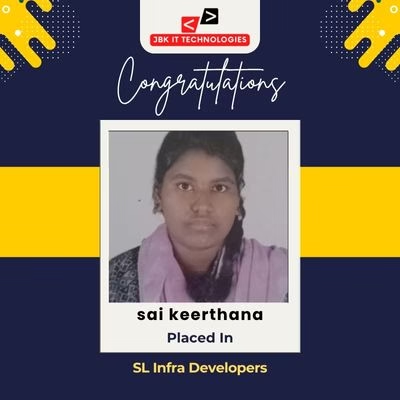C++ Programming Training Institutes In Kothapet
JBK IT Technologies is one of the best C++ Programming Training Institutes in Kothapet offering practical training.
Course Overview
C++ is a powerful object-oriented programming language that forms the backbone of modern software development, system programming, game design, and competitive coding. At JBK IT Technologies, our C++ Programming course is structured to take learners from basic programming concepts to advanced topics like classes, objects, inheritance, and polymorphism. This course provides an ideal transition from procedural programming (such as C) to the world of object-oriented thinking. You’ll not only understand how C++ works, but also why it works the way it does. Whether you’re a student, a job aspirant, or a professional looking to strengthen your coding skills, this course will help you master core programming principles with a focus on writing clean, reusable, and efficient code. Our training begins with a solid foundation in C++ syntax and gradually moves into object-oriented principles. We combine lectures with real-time coding exercises and mini-projects that reflect real industry problems. You’ll learn how to build applications from scratch, solve algorithmic challenges, and improve your problem-solving skills. By the end of the course, you’ll be able to develop applications using object-oriented design patterns, write optimized code, and understand how C++ interacts with memory, hardware, and operating systems—skills that are highly valued in both academic and professional domains. C++ is widely used in software engineering, game development, system-level programming, and high-performance computing. Learning it not only sharpens your logic but also prepares you to pick up other advanced languages like Java, Python, and C# with ease. This course is conducted by experienced trainers at our Ameerpet, Dilsukhnagar, and Mehdipatnam branches in Kothapet, with flexible batches and personal support. Best C++ Programming Training Institute in Kothapet.
Description
The C++ Programming Course at JBK IT Technologies is designed for anyone who wants to build a solid foundation in object-oriented programming and strengthen their problem-solving skills using one of the most powerful programming languages in the software industry. C++ is an extension of the C language, known for its performance, flexibility, and extensive use in system-level programming, game development, and application design. This course covers all core concepts from scratch, starting with basic syntax and gradually moving into advanced topics like classes, objects, inheritance, polymorphism, and file handling. Our curriculum balances theory with practical implementation. Each topic is explained through real-time coding demonstrations and hands-on lab sessions, ensuring that you not only understand the concepts but also know how to apply them in real-world scenarios. You’ll learn to write clean, modular, and reusable code while developing a strong programming mindset. Whether you are a beginner aiming to enter the IT industry, a student preparing for placements, or a developer wanting to sharpen your coding fundamentals, this course will equip you with the skills required to build console-based applications and understand how programming works at a deeper level. The training is led by experienced professionals who focus on clarity, logic-building, and practical exposure. Regular assignments, quizzes, and project work are integrated into the course to help reinforce learning and build confidence. By the end of this course, you’ll be comfortable working with object-oriented design principles, memory management, and file I/O operations. You’ll also be well-prepared to transition into advanced programming areas, such as data structures, algorithms, and competitive coding platforms. If you’re looking for high-quality C++ training in Kothapet, JBK IT Technologies provides classroom and online options, personal guidance, and a learning environment that prioritizes understanding over rote learning. Best C++ Programming Training Institute in Kothapet.
Course Curriculum
Module 1: Introduction to C++
- Overview of Programming Languages
- History and Features of C++
- Setting Up Development Environment (Turbo C++, Dev C++, Code::Blocks, etc.)
- Structure of a C++ Program
Module 2: Fundamentals of C++
- Data Types and Variables
- Input and Output (cin, cout)
- Operators (Arithmetic, Relational, Logical, Assignment)
- Type Conversion and Casting
Module 3: Control Flow
- Conditional Statements (if, if-else, nested if)
- Switch-case Statement
- Loops (for, while, do-while)
- Break and Continue Statements
- goto Statement (and when to avoid it)
Module 4: Functions in C++
- Defining and Calling Functions
- Function Arguments and Return Values
- Function Overloading
- Inline Functions
- Default Arguments
Module 5: Arrays and Strings
- Single and Multi-Dimensional Arrays
- Array Initialization and Operations
- Working with Character Arrays
Module 6: Pointers and Memory Management
- Introduction to Pointers
- Pointer Arithmetic
- Pointers and Arrays
- Pointers to Functions
- Dynamic Memory Allocation (new, delete)
Module 7: Object-Oriented Programming in C++
- Introduction to OOP Concepts
- Classes and Objects
- Access Specifiers (public, private, protected)
- Constructors and Destructors
- Static Members and Functions
Module 8: Advanced Object-Oriented Concepts
- Inheritance (Single, Multiple, Multilevel, Hierarchical, Hybrid)
- Function Overriding
- Virtual Functions and Polymorphism
- Abstract Classes and Interfaces
Who can learn this course
The C++ Programming course at JBK IT Technologies is carefully designed to cater to a wide range of learners, from beginners to those looking to build stronger object-oriented programming skills. If you’re interested in understanding how modern software is built from the ground up, this course is for you.
1. Students Pursuing B.Tech, B.Sc, BCA, or MCA ?
C++ is a core subject in many technical degree programs. Learning it through a practical, hands-on approach strengthens academic understanding and prepares students for placements.
2. Beginners in Programming ?
If you’re just starting out in software or IT and want to learn coding from the basics, C++ provides a strong foundation in logic building, syntax, and structure.
3. Intermediate Programmers ?
If you already know C or have basic coding experience, this course will help you move into object-oriented programming, which is essential for many software roles.
4. Aspiring Software Developers ?
Those planning to enter roles such as software developer, systems programmer, or embedded systems engineer will benefit from C++’s efficiency and flexibility.
5. Job Seekers Preparing for Technical Interviews ?
C++ is a preferred language in many campus placements and MNC interview rounds, especially when it comes to logic-based and coding tests.
Upcoming Batches
| Course Name | Start Date | Mode | Timing | Enroll |
|---|---|---|---|---|
| DIgital Marketing | 07/07/2025 | Online/Offline | 06:00 PM | Book Slot |
| Photoshop | 07/07/2025 | Online/Offline | 04:00 PM | Book Slot |
| Tally | 07/07/2025 | Online/Offline | 12:00 PM | Book Slot |
| Java | 07/07/2025 | Online/Offline | 04:00 PM | Book Slot |
| Advanced Excel | 07/07/2025 | Online/Offline | 03:00 PM | Book Slot |
| Ms Office | 07/07/2025 | Online/Offline | 05:00 PM | Book Slot |
| Python | 07/07/2025 | Online/Offline | 03:00 PM | Book Slot |
| SAP fico | 07/07/2025 | Online/Offline | 05:00 PM | Book Slot |
Training Features

ISO Certified institute offering quality training and industry-recognized certification.
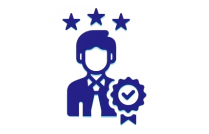
Industry experts with real-time project experience and teaching excellence.

100% placement support with interview preparation and resume building.

Hands-on training with practical, business-oriented Excel assignments.

Interview practice sessions to boost confidence and job readiness.

Interactive sessions for real-time query resolution and concept clarity.
Hiring Clients
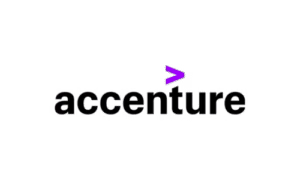
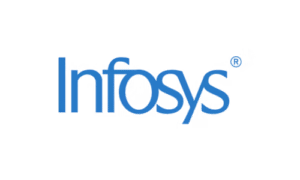
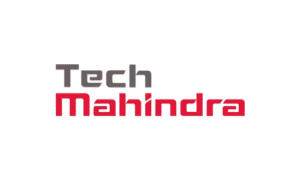

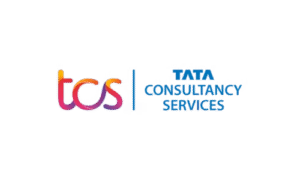
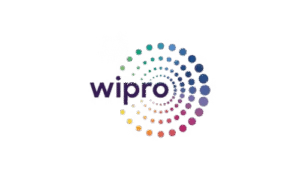
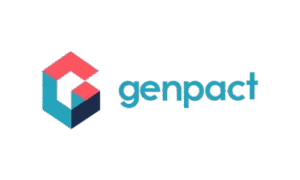
Student Testimonials
FAQ'S
Most Popular Questions
The standard duration of the C++ course is 30 to 45 days. We offer both regular weekday and weekend batches, with flexible timings to suit students and working professionals.
While having a basic understanding of C can be helpful, it is not mandatory. This course starts from the fundamentals and gradually progresses into object-oriented programming, making it beginner-friendly.
This course is ideal for B.Tech, B.Sc, BCA, MCA students, freshers preparing for campus placements, job aspirants, and professionals looking to strengthen their programming foundations.
The C++ course at JBK IT Technologies is heavily practical-oriented. Each concept is explained with examples, followed by lab sessions, assignments, and mini-projects to ensure hands-on learning.
Yes. Object-oriented concepts such as classes, objects, inheritance, polymorphism, encapsulation, and abstraction are covered in detail with real-time use cases.
Yes. All enrolled students receive structured course notes, handouts, and practice questions. For online learners, session recordings and PDF materials are also provided
The C Language course at JBK IT Technologies typically spans 30 to 45 days, depending on the batch schedule and learning pace. Both weekday and weekend batches are available.
No prior programming experience is required. This course is designed for absolute beginners and starts from the basics of programming and logic building.
Yes. This course is highly recommended for engineering and degree students, especially those from Computer Science and related streams. It also helps with academic programming subjects and placement preparation.
We follow a practical, example-based approach. Each concept is explained with real-time examples, hands-on coding, assignments, and regular assessments to ensure complete understanding.
Yes. Students receive detailed study material, handwritten notes, and access to recorded sessions (if attending online) to revise topics anytime.
We offer both modes. Classroom training is available at our Ameerpet, Dilsukhnagar, and Mehdipatnam branches. Online classes are available for students who prefer remote learning.
Recently Placed Students




